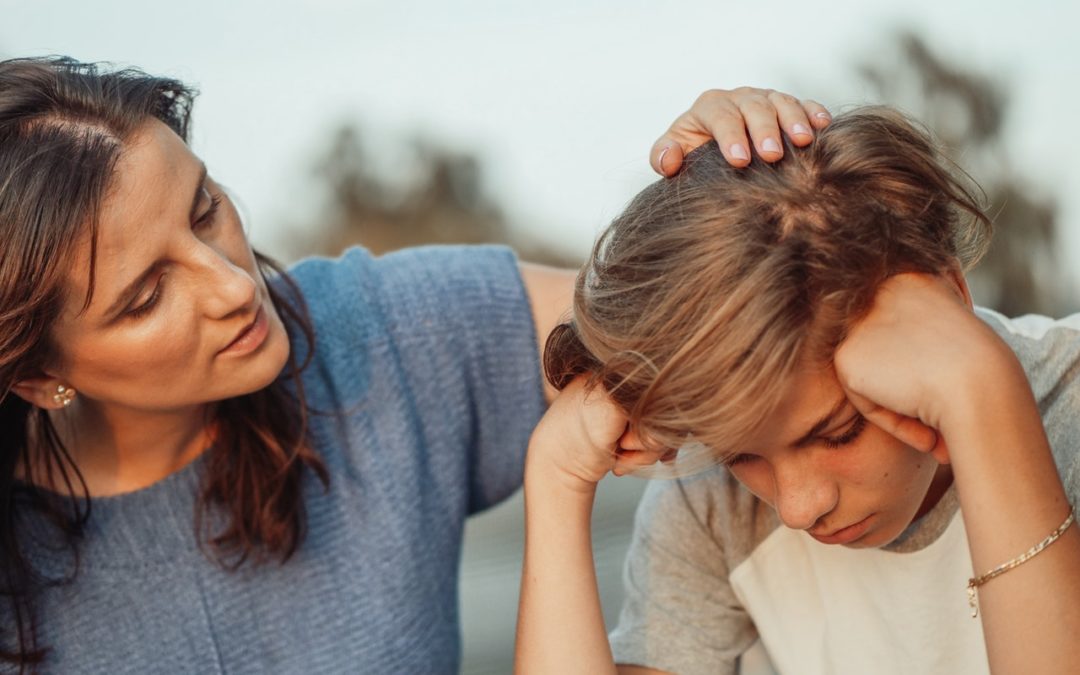There’s no easy way to explain scary news or alarming world events to kids. Whether it is a school shooting or an attack in one of our cities, parents/caregivers often feel at a loss of what to say to their children. While every child has unique needs and different levels of understanding, below are some general tips from professional therapists and other experts that can serve as a guideline for parents/caregivers.
Do your own Self Check
Before talking with your child, check in with yourself. Ask yourself, “how am I feeling?” or “what parts of this experience are most difficult for me?” Once we are able to feel calm and grounded within ourselves, we are better able to handle our child’s feelings.
Listen to your Child
The National Center for School Crisis and Bereavement recommends for parents to start off these tough conversations by first listening to their child’s account of the situation.
Parents need an idea of what their child has learned already. Oftentimes, after a traumatic event has occurred, there is a lot of information circulating on the news and within social media. It’s possible that your child or youth is talking to peers or viewing what others have posted on social media. Find out what they have learned and be ready to correct any misinformation.
Answer their Questions
Be aware that children of different ages will have different questions, and the questions might not be what parents/caregivers expect. Once you have an idea of your child’s questions, concerns, and understanding of the situation, you can start answering their questions.
Try to answer your child’s questions with simplicity and honesty. Of course, make adjustments for their age. Younger elementary school children will respond to simple, brief explanations, with assurances that they are safe. Older children will have varying questions, opinions and emotional responses. Encourage future questions, open communication and expression of emotions. Be ready to validate their anger, fear and sadness (e.g., “That makes sense – I can see why you feel that way” or “I think lots of people have that same feeling right now”).
If your child is not ready to have the discussion, don’t force them to. Leave the door open so they know they can come to you anytime. Sometimes children find it easier to talk about their peers rather than themselves, so you might try asking, “How do your friends feel about it? Were they afraid or sad? Do you feel the same way?”
Minimize News Coverage
Be aware of how often an incident is playing on the news or how often you (and your child) are checking social media for updates. Young children might believe the event occurred closer than it actually did, or might believe it occurred repeatedly instead of just once. Try to keep this type of news off when young children are present. For older children, encourage them to take a break from their online presence, since their social media might be saturated with details of the tragedy.
Stick to Routine
Maintaining a routine helps make children feel safe and comforted. Routines are stable and predictable and help to create a sense of security. Even in times of crisis or tragedy, it’s beneficial for children to stick to their routine as much as possible.
Be Honest & Don’t Avoid the Topic
Discussing this type of trauma might upset your child. They might cry or become anxious, but this is because of the event, not the discussion. The National Center for School Crisis and Bereavement states, “Being silent on the issue won’t protect them from what happened, but only prevent them from understanding and coping with it. Remember that answers and reassurance should be at the level of the child’s understanding.”
Focus on Safety
Your child might be afraid for their safety at school. Remind them of their school’s safety procedures, and ask if they have their own ideas or suggestions. Focusing emotions into action can be helpful to regain a sense of safety and control. Consider participating in community projects, volunteering, or getting involved in advocating for gun safety awareness.
Lydia Breiseth, Manager of Colorín Colorado (a bilingual website for educators and families of English language learners) suggests parents remind children that there are lots of good people out there, people who dedicate their lives to keeping others safe.
It also might be beneficial for your child or youth to speak with someone in the community who is responsible for helping to protect and provide safety. For example, a first responder, school resource officer, school nurse, principal, or police officer can help to provide support and highlight the importance of bonding together in times of tragedy.
Seek Professional Help
An event like a school shooting might cause your child to struggle with their own feelings of anxiety, fear and distress. It may be particularly difficult for children who have been through trauma before, or who were closely involved in an incident, to move on from. If you feel your child might benefit from some extra support or if you need some additional guidance with this issue, seek out a therapist, counselor, physician or psychologist for professional advice.

